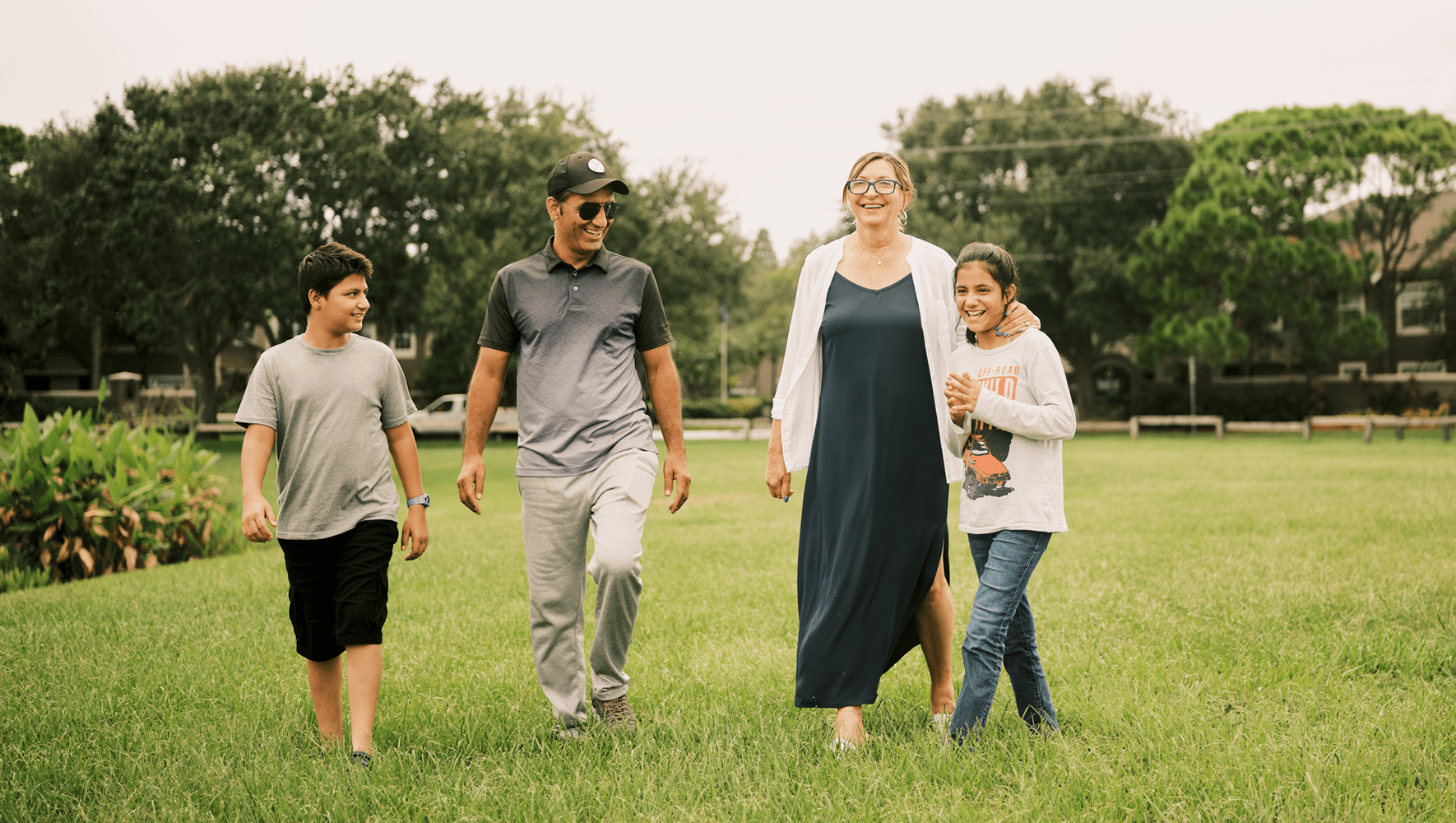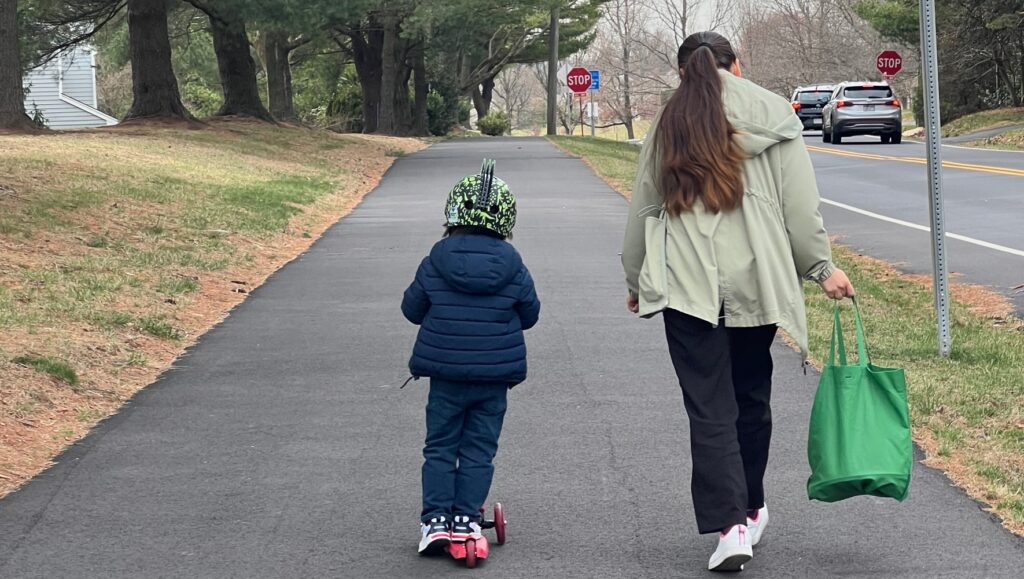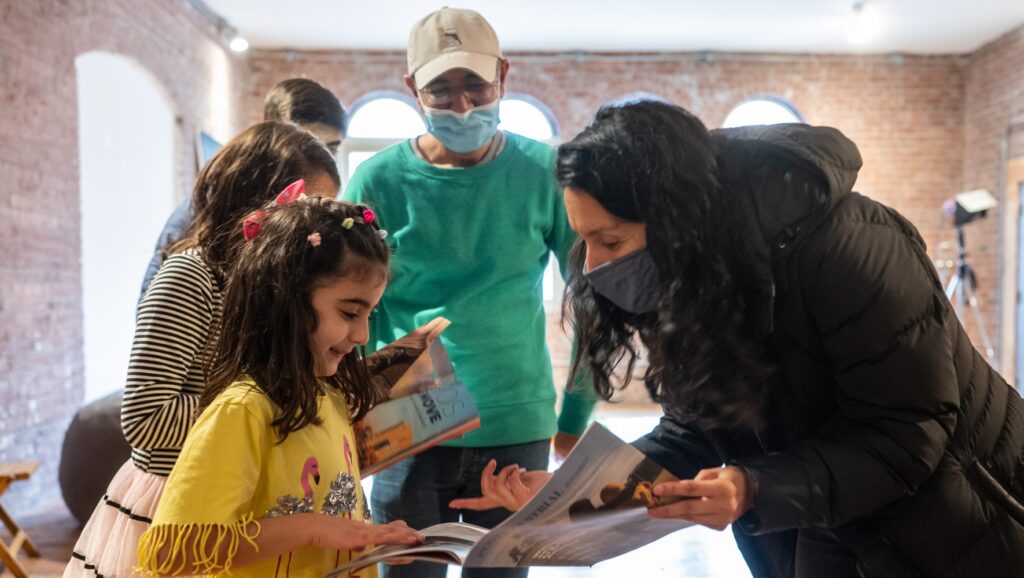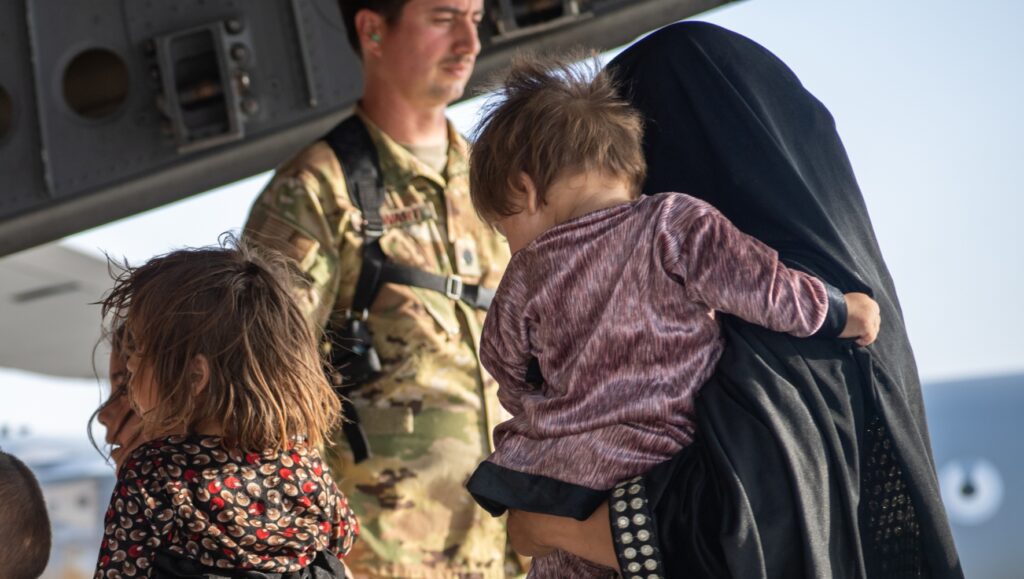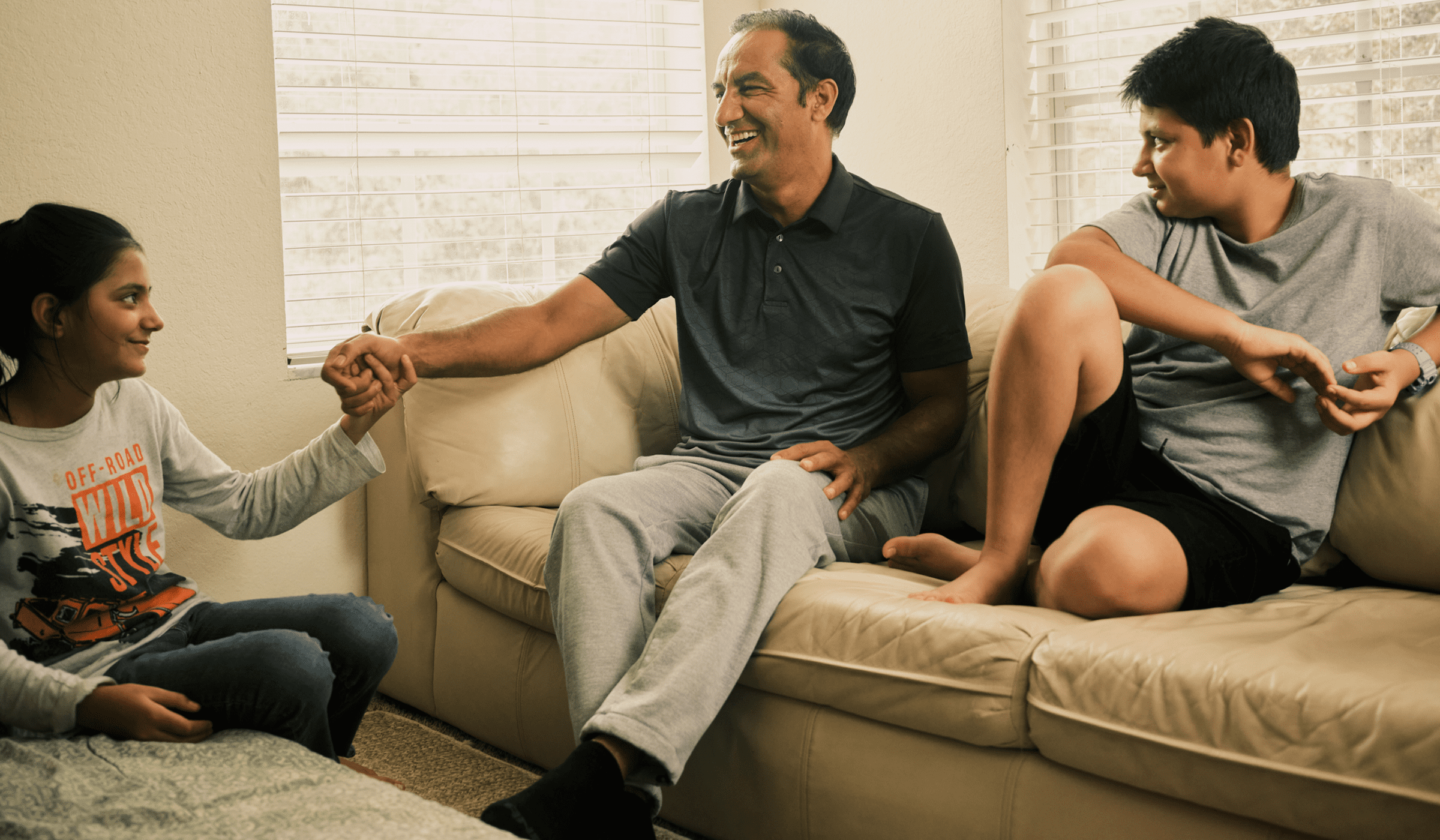
Wali Khan Ahmadzai, 38, arrived in the U.S. on October 10, 2021 with his wife and four children, a backpack full of papers, and little else.
The papers, which documented his work as an interpreter for a Provincial Reconstruction Team and the U.S. army, had been the family’s ticket out of Kabul just six weeks before. Braving the crush of thousands of people desperate to leave the country through Kabul’s airport on August 24, Ahmadzai stood for seven hours, his foot bleeding from climbing over concertina wire to reach the American and Canadian soldiers.
The family’s eventual departure was both an indescribable relief and deeply painful. Ahmadzai, his wife, and children were evacuated, but his sister was not allowed to join them.
“I [waved] my hand to my sister… I had a lot of tears in my eyes,” Ahmadzai said, growing emotional as he recounted the memory. “And I left my sister over there. And everybody over there. Still, I am missing my sister.”
It would be months before the family reached their end destination in Florida, which Ahmadzai chose to be near his former army supervisor, Staff Sergeant Ryan Cobin. The family lived in Qatar for the first few days, then on Germany’s Ramstein Air Base for over a month, then on Virginia’s Fort Pickett military base for more than two months.
“We arrived with zero dollars,” Ahmadzai recalled. “On the military bases, when my younger daughter and my son [would] ask me, ‘Papa, do you have some money to buy some chips, rice, or something for me?’ I told them, ‘I’m so sorry, I [do] not have any money.’ It was really hurting me. So then I decided that when I get to America, I will try my best. The things that we did not get in Afghanistan, I will try my best to get it right here.”
Since being resettled in Florida by HIAS affiliate Gulf Coast JFCS, Ahmadzai has sought to provide for his family. He currently works at a local Walmart, packing online orders from 1:00 to 10:00 pm. In the mornings, he has been practicing for his commercial drivers license (CDL), so that he can become a truck driver — a field that Ahmadzai hears is lucrative, but would take him away from his family for days or weeks at a time. On Wednesday, August 31, Ahmedzai passed the final test to earn his CDL.
An engineer by trade, Ahmadzai owned a small construction company in Afghanistan. He is now working with HIAS and Gulf Coast JFCS’s Microenterprise Development (MED) program to put those skills to work by opening a construction and handyman business. A few weeks ago, Ahmadzai was approved for a MED loan to get the Wali Construction Company off the ground.
The MED program aims to empower participants — who generally have limited access to capital and credit — to start, expand, and maintain small businesses through trainings and workshops, financial literacy education, mentorship, networking, market access, and low interest loans. These loans also help refugees build credit, something that can be a challenge for new arrivals to the U.S. Currently, Gulf Coast JFCS is one of four HIAS affiliates participating in this program.
“Wali is a true professional and a leader in his own right,” said Lorene Gregory, Gulf Coast JFCS’ microenterprise development coordinator. “He is incredibly hard working, and will do whatever it takes to support his family.”
Outside of work, Ahmadzai volunteers his skills as an interpreter at JFCS and the local Lutheran Family Services to help fellow evacuees with less English. His family has been able to lay down roots in this new community, which he attributes to both Gulf Coast JFCS’ staff and the local community of military service members and veterans, largely friends of Cobin’s, who have risen to support him. One such friend has loaned Ahmadzai a truck until he is able to buy his own.
Yet the future is still uncertain for Ahmadzai and his family. Despite his years assisting the U.S. mission in Afghanistan — work that forced Ahmadzai flee his hometown of Gardez for the relative anonymity of life in Kabul due to repeated death threats — he was not able to secure the Special Immigrant Visa (SIV) that would give him and his family a path to permanent residence, and eventually citizenship, in the U.S.
Instead, like most Afghans brought to the U.S. in the tumult following the withdrawal from Afghanistan, the Ahmadzais were granted humanitarian parole, which allows them to live and work in the U.S. for two years. What happens when those two years are up is still unclear.
“Now we are fac[ed] with unknown futures,” said Ahmadzai. “That’s the one concern we have right now. Not only myself, but all Afghan people who came from Afghanistan by the U.S. army. How can we get our legal documents? Everyone is concerned about this.”
With no defined path to permanent residence in the U.S., parolees must apply either for SIV status or asylum, both of which are long and complicated processes. HIAS and its affiliates across the country are guiding Afghan evacuees through these processes, which require a specialized lawyer to navigate. Those who do not qualify for either could apply for Temporary Protected Status, which does not confer a path to permanent status.
Gulf Coast JFCS is working with several well-regarded immigration firms to provide representation to families, explained Sylvia Acevedo, the organization’s senior director for refugee and employment services. Nearly all of the evacuee families they serve have had at least an initial legal consultation. The evacuees have a deadline of one year from their arrival in the U.S. to apply for asylum — a deadline that is quickly approaching for many parolees — and asylum cases can take years to resolve.
“There’s a lot happening, legally, but there’s a real backlog in the system,” said Acevedo. “That’s why we made sure to go to private attorneys who have the knowledge, the bandwidth, and the understanding.”
A solution to these concerns could be found in a bipartisan bill recently introduced in both the Senate and House of Representatives. The Afghan Adjustment Act, which was introduced in early August, would provide a clear pathway to permanent residency for Afghans who arrived as humanitarian parolees and expand eligibility for SIV status.
“HIAS has been advocating for an Afghan Adjustment Act since shortly after the fall of Kabul,” said Naomi Steinberg, HIAS’ vice president for U.S. policy and advocacy. “This act would provide certainty and a path to permanent status for thousands of people currently living in legal limbo.”
Despite this uncertainty, Ahmadzai is happy in Florida. His family feels safe and secure, far removed from the violence of their last days in Kabul. Every day, his children are excited to attend school. His wife, Salma, is studying English and learning to drive — things she did not have the opportunity to do in Afghanistan — and will begin working outside the home once she is more acclimated.
“I chose the right place, Florida,” said Ahmadzai. “That’s why I’m very happy, my kids are very happy.”
Tell Congress to pass the Afghan Adjustment Act, which provide Afghan evacuees with a path to permanent residency in the U.S.
